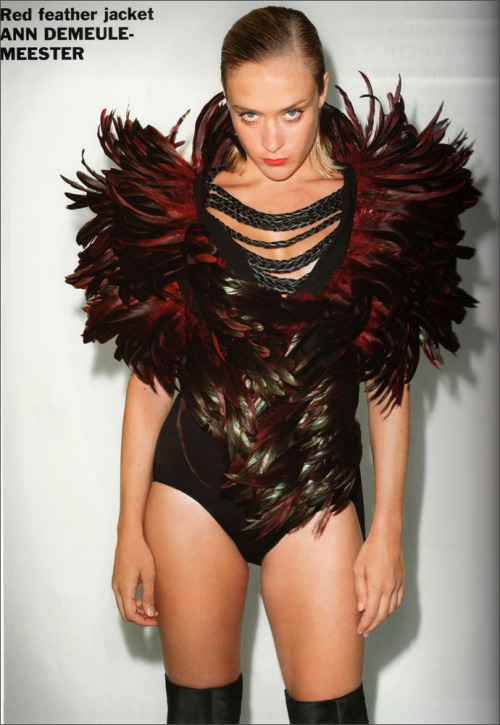 There are jobs that people take on, like becoming a police officer, firefighter or soldier, where you know there's a good chance you could die while at work. You know this. Everyone knows this.
There are jobs that people take on, like becoming a police officer, firefighter or soldier, where you know there's a good chance you could die while at work. You know this. Everyone knows this.
That's why there are fund raisers for the families of those who have lost husbands and wives in shootings, fires fights or in Iraq and Afghanistan. They were doing dangerous work that saves and protects people. You could say you can never pay someone enough for that.
Then there are the jobs that aren't worth dying over -- for anyone. Your minimum wage, "not my problem" jobs. Horrible, sometimes hard, sometimes mundane jobs that happen to many people at some point in their lives. There are no benefits. The hours can be brutal. But you need the cash for yourself or your families, so you put up with it. And if someone ever put a gun in your face for the register you give them the cash because -- seriously -- you're not dying for $7 an hour.
But the reality is many people working low paying service jobs do find themselves, unwillingly, in the line of fire and some do wind up dying for simply showing up at work that day. And it is in these tales of ordinary people who get killed working mundane jobs where you learn why and how corporations, and people serviced by them, get their reputations as being cold, soulless entities.
 Take the case of Taneka Talley.
Take the case of Taneka Talley.
In March of 2006 she was stocking shelves at a Dollar Tree in Fairfield, Calif. when a man came into the store and shot and killed her. According to California law, businesses have to pay death benefits to the families of people who lose their lives while on the job, with an exception for employees killed by individuals they have a "personal" relationship with, i.e. spouses who kill their husbands or wives at work. But Dollar Tree contested paying Talley's 11-year-old son death benefits because Talley is black and was killed by a white man who said he was looking to kill a black person that day.
He just happened to choose Talley.
In the eyes of the lawyers for Dollar Tree and their insurance company, that counted as a "personal relationship." That act of extreme racism that lead to murder was tantamount to an abusive spouse executing their not-so-loved one. Now facing a boycott, a court case that they stand a good chance at losing and some extremely ugly press, Dollar Tree is offering to pay the full benefits.
Of course they are. It only took them two years.
In a statement Monday, Dollar Tree said it was acting voluntarily because "we feel this is the right thing to do." But a lawyer for Talley's mother and guardian of her 11-year-old son said the company was clearly responding to the public anger that followed news coverage of the case.
"I think they would like this to be done with," attorney Moira Stagliano said. "The media helped settle this claim."
Stagliano said she's optimistic about resolving the case but isn't there yet. "What they have offered is not quite the full value," and negotiations are continuing, she said. (San Franscico Chronicle)
 Then we have the more recent tragedy of Jdimytai Damour, the temporary worker trampled to death on "Black Friday" at a Long Island Wal-Mart.
Then we have the more recent tragedy of Jdimytai Damour, the temporary worker trampled to death on "Black Friday" at a Long Island Wal-Mart.
The store was set to open early at 5 a.m. but not early enough for the shoppers who smashed the glass doors and ran right over Damour to get their discounted Nintendo Wiis and digital cameras.
His death was so profound for Wal-Mart that they had to close for a few hours, but somehow were able to put the grief aside and ... those brave little soldiers ... reopen the store when Damour's body wasn't even cold earlier that same afternoon. Who knows if the other employees working that day even got to grieve in those few hours the store was closed. Never mind the fact that some shoppers refused to stop shopping as Damour's body remained on the floor. Even when the cops asked them to leave they were indignant. They'd been waiting outside all night, after all, and needed to buy their cheap crap. Who cares if someone died in their pursuit of manufactured bliss? He was just a temporary worker with family and friends who loved him and affectionately called him "Jimbo" for short.
Obviously not human.
Or at least not deserving of any dignity and humanity in death. Not when the game of death for dollars is being played in America. Four other shoppers, including a pregnant woman, were also injured in the melee.
Damour's family is now suing Wal-Mart because ... well, who can blame them? They obviously weren't prepared to handle the 2,000 person mob that spelled Damour's demise. Many believe he was placed at the door because he was so big and tall (Damour was 6-foot-5 and weighed 270 pounds), and that his death was a combination of "mob mentality," poor crowd control and Wal-Mart's low, low prices.
(Terry) Hemeyer, who also teaches marketing, public relations and advertising at the University of Texas at Austin, places the onus on retailers to prevent such accidents. He said that throughout history, consumers have been attacking each other to get sale items that are in short supply, even when people are lined up waiting for the doors to open.
Hemeyer, who made a point not to attack Wal-Mart, said if store managers don't understand the "herd mentality," then they are not doing their jobs.
"In other words," he said, "if you do something that the doors open at 8 and that's when the sales start and it's a limited supply, I think that's a formula for a problem because everybody has to be there at the same time." (Houston Chronicle)
Pictures of Damour, a 34-year-old Jamaican, were rarely seen as this story was reported on in the press. Even online it's hard to find an article about him. Most stories focus on Wal-Mart or whether our society is decaying because people are dying for cheap Chinese-made goods at big box retailers. But people have always died working retail. It doesn't happen often, but ask anyone who works at a gas station, liquor store, late night diner or fast food restaurant or 7-11 how they feel about their safety and you'll know that you don't have to be a police officer to face death at work.
I just hope Wal-Mart, which doesn't have the best record on this, does the right thing in Damour's case. If not out of the goodness of the heart I know Wal-Mart doesn't have, out of the the good PR they would get in a time where Wal-Mart is blamed for pretty much ever evil in our society. It's true he was a temporary worker, but he died for their dollars.
Let them know why they should care.
To contact Dollar Tree, click here.
To contact Wal-Mart, click here.













0 comments:
Post a Comment